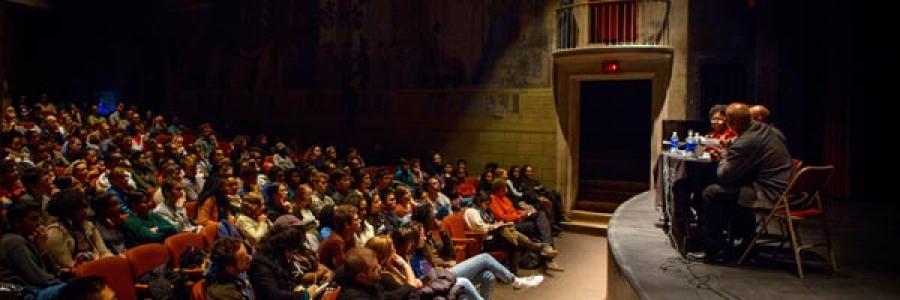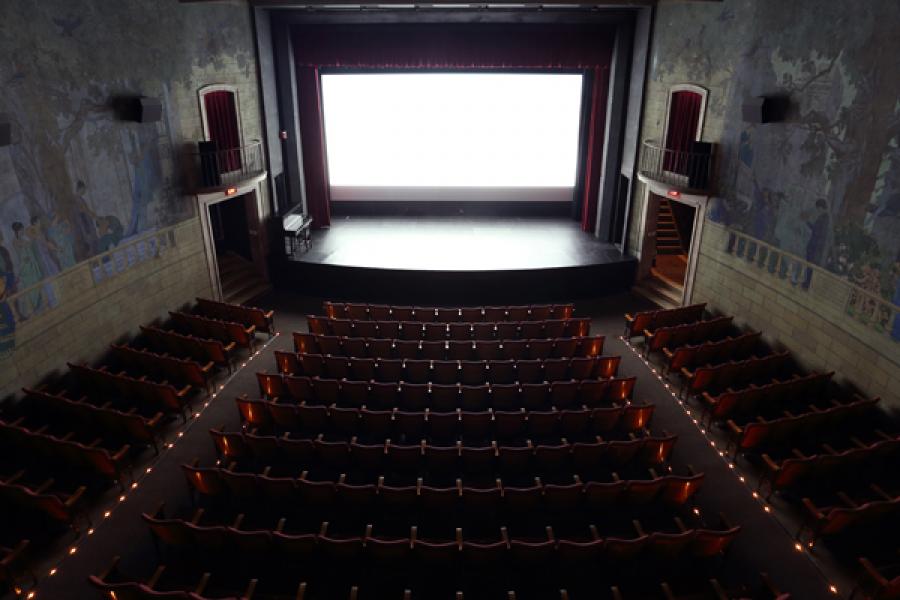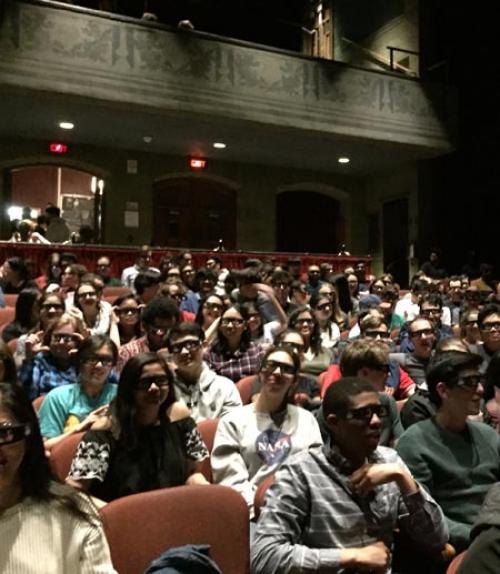Thanks to financial support from an alumni donor, the Graduate & Professional Student Assembly, and new funding from the College of Arts & Sciences, Cornell Cinema is on its strongest financial footing in decades, said Mary Fessenden, cinema director.
The cinema is also hatching a plan to offer a low-price all-access pass to students, faculty, staff and the community this fall – at only $10 for graduate & professional students, $20 for undergrads and $30 for others – that would allow moviegoers to attend all shows, with the exception of special events.
The alumni donation of $250,000 – from a donor who wishes to remain anonymous — and the college’s agreement to cover the majority of staff salaries as part of a five-year, renewable plan, came after an evaluation of the cinema’s educational contributions to the university and many letters of support from faculty.
“The College of Arts and Sciences is very pleased to provide this financial footing for Cornell Cinema going forward,” said Derk Pereboom, senior associate dean for arts and humanities in the College of Arts & Sciences. “Sabine Haenni (associate professor and interim chair of performing and media arts) and Mary Fessenden set out a strong case, supported by at least 30 letters from Cornell faculty attesting to the importance of Cornell Cinema to our educational mission.”
- “With its expert curation of contemporary and historical film, international cinema, much of it exceedingly rare, Cornell Cinema can be considered as a unique resource for teaching and research,” wrote Jeremy Braddock, associate professor of English and Verity Platt, professor of classics and history of art, in one of the many letters.
- “No mere place for entertainment, Cornell Cinema has a rare, singular and direct influence on the academic work that we perform, both as instructors and as publishing scholars,” wrote Nick Salvato, professor of performing and media arts, who will return as chair in fall 2019.
- “These collaborations with Cornell Cinema offer academic value in providing both students and faculty with the opportunity to see older or obscure films as they are intended to be experienced – on a big screen and through an immersive public experience (distinct from watching on YouTube!),” wrote Judith Peraino, professor of music.
- “Not a semester has gone by when I have not assigned my students to watch films, participate in workshops or attend lectures and talk backs offered by Cornell’s extensive and diverse film program,” wrote Cheryl Finley, associate professor of history of art.
“We are incredibly grateful to Senior Associate Dean Derk Pereboom and Dean Ray Jayawardhana, and appreciative of our alumni support and the support from faculty, including the faculty on our advisory board,” Fessenden said, adding that group helped by providing valuable feedback during the transition.
The cinema has kept pace with technology by adding a digital cinema package in 2013 and a 3D system in 2017, but what makes the cinema unique is its capability to still show 35mm films, its classic film screenings, its presentation of live music events, and frequent faculty intros, post-screening panel discussions and visiting filmmaker presentations. Fessenden said at least 70 percent of the cinema’s programming is educational, related to courses, conferences, visiting scholars or student organizations’ educational missions.
During the past seven weeks, for example, the cinema showed 15 films related to specific classes – from recent works such as “If Beale Street Could Talk,” attended by students in creative writing and Africana studies classes to “Territorio,” which brought Ecuadoran filmmaker Alexandra Cuesta to campus for a screening and meeting with students in Senior Lecturer Cecelia Lawless’ Perspectives on Latin America course.
Along with its ability to offer a wide variety of diverse works, Fessenden said faculty and students appreciate the opportunity to have the communal experience of watching a film with others.
"Watching a film in a darkened theatre with high quality projection on a large screen and great sound is an entirely different experience than watching on a computer screen in a dorm room," she said. "The viewer's attention is more focused in this setting, where there aren't external distractions, so the experience is much richer and more impactful."
Fessenden stressed that the cinema will need to continue to apply for external grants, raise internal co-sponsorship funds, sell concessions, offer rental nights and continue annual fundraising campaigns. These activities will be increasingly important as the Graduate & Professional Student Assembly gradually reduces its support of the program over the next several years, as part of a plan agreed upon in 2017.
She already has a slate of special events and screenings on the calendar for the fall, including an all-out sales campaign to encourage everyone to buy the new passes, which the organization expects will go on sale shortly before the cinema reopens for the semester Aug. 25.






